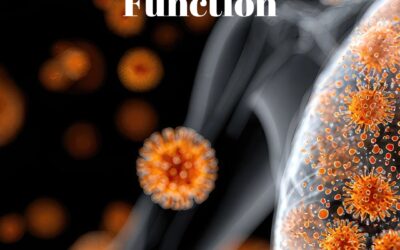Node Smith, ND
A recent study has linked vital exhaustion later in life to an increased risk of developing dementia.1 Vital exhaustion can be seen as psychological distress and manifest as fatigue, increased irritability and demoralization.
Study linked vital exhaustion later in life to an increased risk of developing dementia
The research was conducted at the Department of Public Health, University of Copenhagen, in collaboration with the National Research Centre for the Working Environment, and the Danish Dementia Research Centre. The research showed that distress in later midlife is associated with a higher risk of dementia later in life. These findings add to our current understanding of psychological factors affecting neurocognition, and should be taken into account in preventative strategies, especially with dementia.
Psychological distress
Psychological distress is considered a state of emotional suffering that can be accompanied by somatic symptoms. Vital exhaustion is manifested as experiences of unusual fatigue, increased irritability and demoralization. Vital exhaustion is considered to be a response to being faced with unsolvable problems in one’s life, especially when individuals are incapable of adapting to stressors for prolonged periods of time.
Sabrina Islamoska, Ph.D. student from the Department of Public Health, University of Copenhagen, has shown a dose-response relation between symptoms of vital exhaustion reported in late midlife and the risk of dementia later in life. Islamoska explains: “For each additional symptom of vital exhaustion, we found that the risk of dementia rose by 2%. Participants reporting 5 to 9 symptoms had a 25% higher risk of dementia than those with no symptoms, while those reporting 10 to 17 symptoms had a 40% higher risk of dementia compared with not having symptoms.”
Research looked at data from nearly 7,000 Danish individuals
The research study looked at data from nearly 7,000 Danish individuals, who responded to questions about vital exhaustion. The average age of the participants at the time they were surveyed was 60 years. The participants were followed from 1991-2016, during which time national hospital, mortality and prescription registers were analyzed to identify dementia cases.
Symptoms of vital exhaustion and early signs of dementia
“We were particularly concerned whether the symptoms of vital exhaustion would be an early sign of dementia. Yet, we found an association of the same magnitude even when separating the reporting of vital exhaustion and the dementia diagnoses with up to 20 years,” Islamoska said. The results of this study support that distress in late midlife may potentially increase the risk of dementia in later life. Despite adjusting for several other well-known risk factors for dementia, such as sex, marital status, lower educational level, lifestyle factors and comorbidities, the risk of dementia associated with vital exhaustion did not change.
‘Stress can have severe and harmful consequences’
“Stress can have severe and harmful consequences not just for our brain health, but our health in general. Cardiovascular risk factors are well-known modifiable risk factors for dementia, and in some countries, a stagnation or even a decreasing incidence of dementia has been observed. Our study indicates that we can go further in the prevention of dementia by addressing psychological risk factors for dementia,” Islamoska said.
Source:
 Node Smith, ND, is a naturopathic physician in Humboldt, Saskatchewan and associate editor and continuing education director for NDNR. His mission is serving relationships that support the process of transformation, and that ultimately lead to healthier people, businesses and communities. His primary therapeutic tools include counselling, homeopathy, diet and the use of cold water combined with exercise. Node considers health to be a reflection of the relationships a person or a business has with themselves, with God and with those around them. In order to cure disease and to heal, these relationships must be specifically considered. Node has worked intimately with many groups and organizations within the naturopathic profession, and helped found the non-profit, Association for Naturopathic Revitalization (ANR), which works to promote and facilitate experiential education in vitalism.
Node Smith, ND, is a naturopathic physician in Humboldt, Saskatchewan and associate editor and continuing education director for NDNR. His mission is serving relationships that support the process of transformation, and that ultimately lead to healthier people, businesses and communities. His primary therapeutic tools include counselling, homeopathy, diet and the use of cold water combined with exercise. Node considers health to be a reflection of the relationships a person or a business has with themselves, with God and with those around them. In order to cure disease and to heal, these relationships must be specifically considered. Node has worked intimately with many groups and organizations within the naturopathic profession, and helped found the non-profit, Association for Naturopathic Revitalization (ANR), which works to promote and facilitate experiential education in vitalism.
Node Smith graduated from the National University of Natural Medicine (NUNM) in 2017, and is currently licensed as a naturopathic physician in Oregon and working towards becoming licensed in Saskatchewan, Canada as well.





















